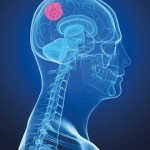Quick Reads
Posted on September 2, 2013 by bob in NewsUCanUse
Prime Reader Response: A Quick Reads selection from August regarding fish oil supplements and heart health prompted a local doctor to refer us to a recent study published in the New England Journal of Medicine. That study concluded that fish oil pills do not reduce the risk of heart attack and stroke in people at increased risk. The study did not address the consumption of fish containing omega 3 fatty acids. As with all health-related information, in Prime and elsewhere, consult your doctor before starting any supplement regime.
While newspapers have ramped up their on-line presence, and circulation figures have fallen, a new study from City University London shows more than 90% of newspaper reading is still done with the paper in-hand. This includes ‘apps’ developed by newspapers to make on-line consumption of their material easier.
One surprising finding is that for newspapers with an international presence, overseas readers still spend more time with the printed paper than the on-line edition.
Published in the journal Digital Journalism, the study is one of the most comprehensive of its kind, and demonstrates the enduring importance of newspapers’ print editions in capturing and holding their readers’ attention.
One co-author of the study pointed out that newspapers still receive more than 85% of their advertising revenues from print, so it’s little surprise that a similar percentage of their readership still enjoys holding the printed page.
Almost half of senior citizens undergoing surgery with general anesthesia were found to have delirium in the post anesthesia care unit (PACU), according to a recent study published in Anesthesia & Analgesia, the official journal of the International Anesthesia Research Society (IARS).
Delirium – sudden severe confusion and rapid changes in brain function – occurring early after surgery, is linked to decreased cognitive (mental) function and an increased rate of nursing home admission, according to the study by Dr. Karin J. Neufeld of Johns Hopkins University and colleagues.
“Recognizing delirium in the PACU may be important for identifying patients at higher risk of in-hospital harms…as well as cognitive impairment and institutionalization at hospital discharge,” they write.
The patients’ average age was 79 years, and nearly 80 percent were living independently before their operation. All received widely used forms of general anesthesia for surgery.
After Alzheimer’s disease, the most common cause of significant memory loss is vascular dementia, a disorder often resulting from a series of tiny strokes, or infarcts, that destroy brain cells. Each small infarct may be inconsequential alone, but the cumulative effect of many infarcts can destroy enough brain tissue to impair memory, language and other intellectual abilities.
Symptoms of vascular dementia often develop suddenly, and they are not limited to brain functions. Non-cognitive hallmarks of vascular dementia include loss of bladder or bowel control, a mask-like facial expression, and weakness or paralysis on one side of the body. Vascular problems account for 10 to 20 percent of all dementia cases.
Many people suffer from vascular dementia as a result of chronic high blood pressure, diabetes or coronary heart disease.
– From the Johns Hopkins Health Alert, www.johnshopkinshealthalerts.com
People are heavily influenced by the positive opinions other people express online, but are much less swayed by negative opinions posted in the same venues. Certain topics, including politics, see much more of this “herding” effect than others.
A new study, co-authored by MIT professor Sinan Aral and published in the journal Science, details a five-month experiment conducted on a major news-aggregation web site. By manipulating the favorable ratings on certain comments on the website, researchers were able to increase the popularity of the comments by up to 25 percent.
Comments given negative ratings attracted more negative judgments, but the increase of negative comments was offset by additional positive responses.
The research points out the ease of manipulating online ratings, whether by political operatives, marketers or someone who stands to profit by creating an exaggerated appearance of popularity.
One aim of the research is to aid designers in developing on-line response systems that are more fair, with fewer incentives for manipulation and fraud.
 TV Before Kindergarten; Bad Idea
TV Before Kindergarten; Bad Idea
The American Academy of Pediatrics (AAP) discourages parents from allowing children to watch TV during infancy, and recommends no more than two hours per day beyond age 2. These recommendations were recently given added credence by a U. of Montreal study on the effects of TV viewing prior to kindergarten.
Researchers concluded that, at 29 months old, each hour of increased TV viewing beyond AAP recommendations is associated with diminished vocabulary and math skills, and reduced classroom engagement. Other results included victimization by classmates and physical prowess at kindergarten.
This study only looks at the most common form of screen time, which is in the home. However, it may be an underestimate because many child care settings use television as an activity during care giving.













